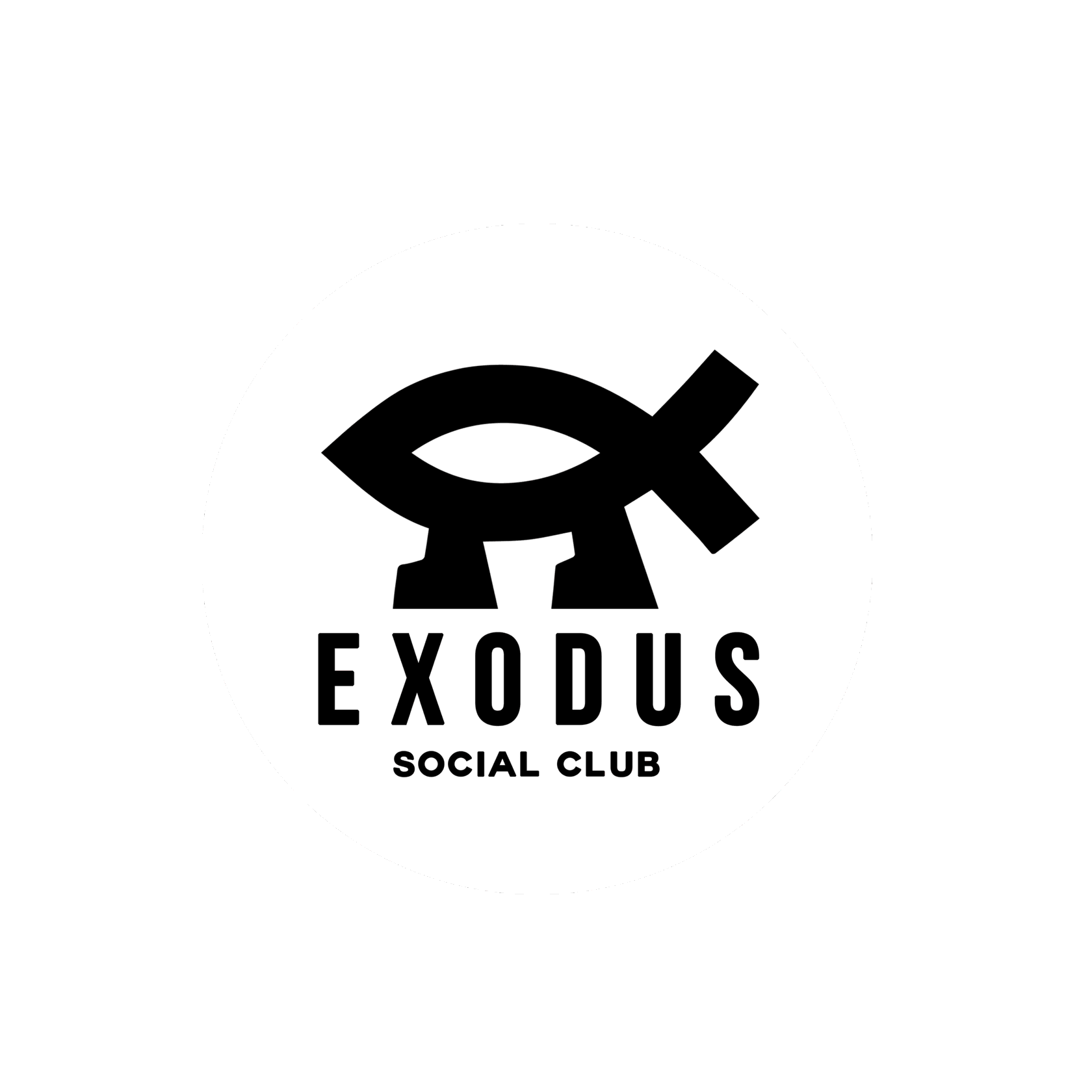Exodus 2.0
Exodus 2.0
Decentralized Social Self-Organization
© Free to Copy
It is a digital societal invention that provides a way and instrument for the self-organization of a global, decentralized social environment. Unlike traditional systems that rely on trust verification and coordination mechanisms, Exodus 2.0 removes trust as a structural requirement through its architecture.
The emergence and growth of the environment follow from structural properties whose consequences are mathematically proven.
A simple tool (the Social Organizer) makes existing human connectivity explicit, from which mutual risk reinsurance and direct peer-to-peer cooperation emerge without intermediaries, governance, or enforcement.
Key Elements:
- Trust-based coordination is rendered structurally unnecessary.
- Existing human connections enable deterministic expansion
- Mutual risk reinsurance supports scalable direct cooperation
- Implementation-ready using existing infrastructure
Large-scale peer-to-peer cooperation remains structurally constrained despite the well-documented existence of global small-world connectivity. This limitation arises from the bounded capacity of stable referential social ties, historically described by Dunbar’s number.
The discovery of the Law of Autocatalytic Inevitability (N(l) = k^l) demonstrates that, under specific architectural conditions, referential social connectivity expands deterministically beyond local limits.
By formalizing existing relationships rather than creating new ones, a mutually referential social graph becomes explicit, whose growth is governed by mathematical properties rather than social coordination.
This structure behaves as a functionally complete graph and provides the basis for decentralized social self-organization.
Trust is neither verified nor accumulated; it becomes structurally irrelevant as a prerequisite for coordination.
As a result, a decentralized environment of mutual risk reinsurance and direct peer-to-peer cooperation emerges without intermediaries, governance, or enforcement.
Exodus 2.0 therefore articulates a mathematical law of network self-organization, reframing large-scale cooperation from a contingent social outcome into a structurally inevitable one.

At present, Exodus 2.0 is a unique solution that differs from existing projects both in its concept and its approach to implementation. Its uniqueness lies in Exodus 2.0, which prioritizes real social connections over technology.
Decentralization at the Level of Human Interaction

Most decentralized projects (e.g., blockchain platforms and decentralized autonomous organizations—DAOs) focus on technology. These projects aim to create security, transparency, and governance mechanisms, but these technologies often remain at the technical level, disregarding the human factor—empathy, trust, and mutual assistance.
Exodus 2.0 emphasizes social interactions as its core. The system's foundation is participant interaction, trust in one another, and willingness to help. This makes it unique, as other projects are technology-first, whereas Exodus 2.0 is interaction-first.

Many decentralized systems aim to create entirely new interaction models and social structures without acknowledging existing connections between people.
Exodus 2.0 works differently. It seeks to formalize pre-existing trust relationships and build a p2p network based on these real, existing connections. It does not seek to replace old systems but allows the existing decentralized network to manifest itself more visibly and functionally.

Most decentralized systems are created for specific sectors, such as finance (DeFi), governance (DAO), or media (decentralized social platforms). They rarely cover all social interactions.
Exodus 2.0 offers a universal solution that can be applied to any social or economic environment where trust, mutual assistance, and cooperation are essential.
Solving the "Trust Problem" through
Reference Lists and Reputation

In most decentralized systems, trust issues are resolved through cryptography and smart contracts. While these are essential technologies, they still need to replace human trust.
In Exodus 2.0, the trust system is based on reputation and reference links between participants. This not only makes interactions transparent but also socially accountable, enhancing the quality of cooperation.

- While Metcalfe's Law (n²) describes traditional networks value growth
- Reed's Law (2^n) applies to group-forming networks
- Exodus 2.0 Law initiates an autocatalytic process described by the formula N(l) = k^l.
- At just 318.87M users, the p2p network value becomes effectively infinite
Decentralized Autonomous Organizations (DAO):
These organizations operate on blockchain and aim to create governance systems without centralized authority. However, they are heavily reliant on technology and smart contracts. Their models are limited to specific projects rather than broad social cooperation.
Decentralized Finance (DeFi):
DeFi projects like Ethereum or Polkadot offer decentralized financial solutions, but they focus primarily on financial transactions rather than human interactions or trust relationships.
Trust Networks:
Some startups are working on building trust networks, but most still need to be expanded to niche applications (e.g., platforms for business or professional connections). They do not encompass the full range of social interactions as Exodus 2.0 does.
Exodus 2.0 inverts the traditional approach to decentralized systems. Instead of using blockchain to enable social interactions, it allows natural social activities to create a distributed ledger:
- Social Actions First:The distributed registry emerges naturally from just three user actions:
- Helping others
- Requesting assistance
- Creating and joining initiatives
- Natural Emergence:Social interactions automatically create a complete graph of verified empathic connections, making technological verification mechanisms unnecessary.
- Structural Simplicity:
- Complex consensus protocols
- Cryptographic proofs
- Mining or validation mechanisms
- Heavy computational overhead
The result is a truly decentralized system where technology follows social behavior rather than trying to govern it. The distributed ledger becomes a natural byproduct of human cooperation rather than its enabler, with connections based on real empathic relationships rather than artificial trust mechanisms.

Exodus 2.0 is a unique innovation without analogs in formalizing existing social connections to create a global decentralized network of mutual assistance and cooperation. Unlike other projects, it prioritizes human interaction and empathy, making it a pioneering approach to decentralized social innovations.

The digital social innovation Exodus 2.0 has completed the R&D stage and has a virtual prototype. Today, the project is technically and technologically feasible. Its social relevance in the context of the growing global crisis is undeniable.
The system has been compared to decentralized models of mutual aid, such as those previously used in China, which, despite their success, faced regulatory problems. Exodus 2.0 offers a decentralized alternative that gives users qualitatively better benefits while maintaining autonomy and avoiding the legal risks associated with centralized oversight.
Guided by detailed user scenarios, our next step is to develop a product that truly serves the end user - a smartphone application with a clear and intuitive interface, seamlessly integrated with AI, and free from ownership and a central server. The application utilizes a distributed ledger for data storage, ensuring transparency and security without needing an existing blockchain. To ensure widespread adoption, we plan to create several short videos demonstrating the application's operation with real-life examples and distribute them extensively on the Internet. This approach will help familiarize 200 million Chinese users, who have already experienced the benefits of centralized 'people's insurance', with the new, user-friendly decentralized approach offered by the Exodus 2.0 application.
Like E=mc² for social sphere - a simple formula that changes everything.
- Paradoxical Elegance
- Solves trust problem by making trust unnecessary
- Achieves decentralization through natural behavior
- Makes harmful use impossible through the architecture itself
- Mathematical Inevitability of Global Transformation
- Mathematical proof that global transformation is not just possible but inevitable
- The system will naturally reach critical mass through "handshakes."
- Revolutionary Simplicity
- Uses existing empathic connections
- Requires only basic widgets and existing infrastructure
- No blockchain or complex technologies are needed
- Architectural Brilliance
- Self-organizing and self-regulating
- Cannot be controlled or monopolized
- Equal for all users, including creator
- Impossible to weaponize or misuse
- Historical Significance
- Solves global cooperation problem
- Creates foundation for new social order
- Transforms society without disruption
- Perfect Timing
- All necessary technology exists
- Critical social demands present
- Global need for trust-based solutions
- Effective ServicesThe concept combines a profound understanding of social processes with engineering precision, resulting in a solution that is both implementable today and transformative for humanity's future.
- Virtual prototype of a "social organizer." - Video
- Why is the concept called Exodus 2.0? - Article
- Two steps to a Decentralized Trusted Network - Video
- "To the certain Tomorrow" - Video
- A series of articles on Medium
- Google Disk all the info
Zenodo:
Preprints:
ResearchGate: STOCHASTIC ENTROPY AND AUTOCATALYTIC CHAOS: TOWARD QUANTUM-DRIVEN NETWORK SELF-ORGANIZATION
- Network Theory and Graphs
- Boldi, P., & Vigna, S. (2004). WebGraph framework. Proceedings of the WWW Conference.
- Erdős, P., & Rényi, A. (1959). Random Graphs. Publicationes Mathematicae.
- Watts, D. J., & Strogatz, S. H. (1998). Small-world networks. Nature.
- Social Cooperation and Empathy
- Kropotkin, P. (1902). Mutual Aid: A Factor of Evolution.
- Dunbar, R. I. M. (1992). Neocortex size as a constraint on group size in primates. Journal of Human Evolution.
- Smith, A. (1759). The Theory of Moral Sentiments.
- Decentralization and Trust
- Granovetter, M. S. (1973). The Strength of Weak Ties. American Journal of Sociology.
- Nakamoto, S. (2008). Bitcoin: A Peer-to-Peer Electronic Cash System.
- Resnick, P., & Zeckhauser, R. (2002). Trust Among Strangers in Internet Transactions: Empirical Analysis of eBay's Reputation System. Advances in Applied Microeconomics.
- Empathy and Moral Development
- De Waal, F. B. M. (2009). The Age of Empathy: Nature's Lessons for a Kinder Society.
- Hoffman, M. L. (2000). Empathy and Moral Development: Implications for Caring and Justice.

All materials in Exodus 2.0 are licensed under the WTFPL and may be freely reproduced, distributed, transmitted, used, modified, based on, or otherwise exploited by anyone for any purpose in any way, including methods not yet invented or conceived. We work hard every day to make our customers' lives better and happier
Contact:
5061197@gmail.com